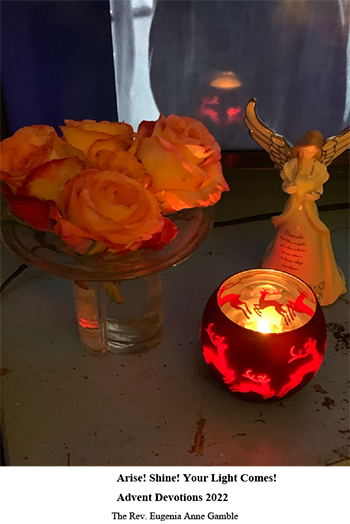Mark 10: 56-52 - What Do You Want Me to Do for You?
Mark 10:46They came to Jericho. As he and his disciples and a large crowd were leaving Jericho, Bartimaeus son of Timaeus, a blind beggar, was sitting by the roadside. 47When he heard that it was Jesus of Nazareth, he began to shout out and say, “Jesus, Son of David, have mercy on me!” 48Many sternly ordered him to be quiet, but he cried out even more loudly, “Son of David, have mercy on me!” 49Jesus stood still and said, “Call him here.” And they called the blind man, saying to him, “Take heart; get up, he is calling you.” 50So throwing off his cloak, he sprang up and came to Jesus. 51Then Jesus said to him, “What do you want me to do for you?” The blind man said to him, “My teacher, let me see again.” 52Jesus said to him, “Go; your faith has made you well.” Immediately he regained his sight and followed him on the way.
Background: Jesus and his disciples are heading to Jerusalem to celebrate the great Passover feast. They know that it is dangerous. Jesus has many enemies among the power elite. The high officials in the Temple do not understand him and believe that he is dangerous and must be stopped. Even those closest to Jesus don’t understand him. They know the danger, but they just don’t want to look at it. They are spending their walk planning the new government that they still hope Jesus will inaugurate. They are figuring out how to parlay his popularity as a healer, exorcist and story teller into a quick and painless revolution.
When we pick up the story today, Jesus has just predicted his death for the third time. Then he tells his friends that if they want honor they have to serve others, put the needs of others above themselves. Throughout his gospel, Mark emphasizes the spiritual blindness of Jesus’ disciples. They are painted as slow learning, ambitious, selfish, afraid and obtuse. Still, they follow him, even into danger.
So, with his band of spiritual ‘blindmen’ Jesus enters Jericho where he performs his last healing miracle in Mark. Ironically, it is the healing of a blind man.
Word Study
Vs. 46 – Jericho – a city about 18 miles from Jerusalem best known as the site that Israel first conquered when entering to claim the land of Canaan.
A large crowd – this would have been largely made up of pilgrims on their way to Jerusalem for Passover.
A blind beggar – this man occupied the lowest status in Israel. People often believed that those upon whom calamity fell brought it on themselves by their sin so the poor and disabled we often shunned and judged harshly.
Vs. 47 – Son of David – There was a big debate in Israel about whether Messiah would be of the tribe of David or of Levy. This man uses a Messianic title to get Jesus’ attention.
Mercy – this is a special word that assumes the resources needed to make a difference. Compassion that does something.
Vs. 48 – sternly ordered him to be quiet – Up until this time in Jesus’ ministry he has always cautioned people not to talk about what he is doing, so it is natural that the disciples would think it important for the man to be quiet. This is not necessarily trying to disrespect the man although his lowly status made him easier to dismiss.
Cried out even more loudly – the tense of this phrase in Greek indicates that he was continually crying out. He is showing persistence and focus here.
Vs. 49 – Call him here – The word call means to shout. The word is often used to mean ‘come to your senses.’
Take heart – be cheerful, have hope.
Get up – stand up.
Vs. 50 – throwing off his cloak – this would have been the only thing he had of value and protection. At Jesus’ call, he tosses even that aside.
Sprang – jumped up.
Vs. 51 – blind – In Mark, as in much of the New Testament, the word blind referred to physical blindness. It also was used as a metaphor for spiritual or intellectual blindness.
Vs. 52 – Go – go on your way.
Faith – Greek word pistis. It means to trust. This is not to say that the man has assented to certain propositions or tenets or doctrines. Rather it is his simply trust that Jesus can help him that opens the way of healing.
Made well – Greek word sesoken – means to be restored, put back together.
Questions for Personal Reflection
1. Who do you identify as having the status of the blind man in our society? Who are the people ‘along the roadside’ who are shouting for help today?
2. The Greek word eleison that we translate as mercy is more than mere kindness or forgiveness. It assumes that in releasing or offering it, something concrete will happen to make a difference. What are some of the acts of mercy you have received? How do you see our church acting with mercy today?
3. Jesus asked the blind man what he wanted him to do for him. If Jesus asked you that question, what would you say? If he asked our church that question, what would you say?
4. The blind man shows a remarkable process of healing. First, he calls out to Jesus. Second, he shows persistence and focus. Third, he tells Jesus what he wants him to do. Finally, after his healing, he follows Jesus. How do you experience the process of healing?
5. Where do you indentify spiritual blindness in your life? In the world?



